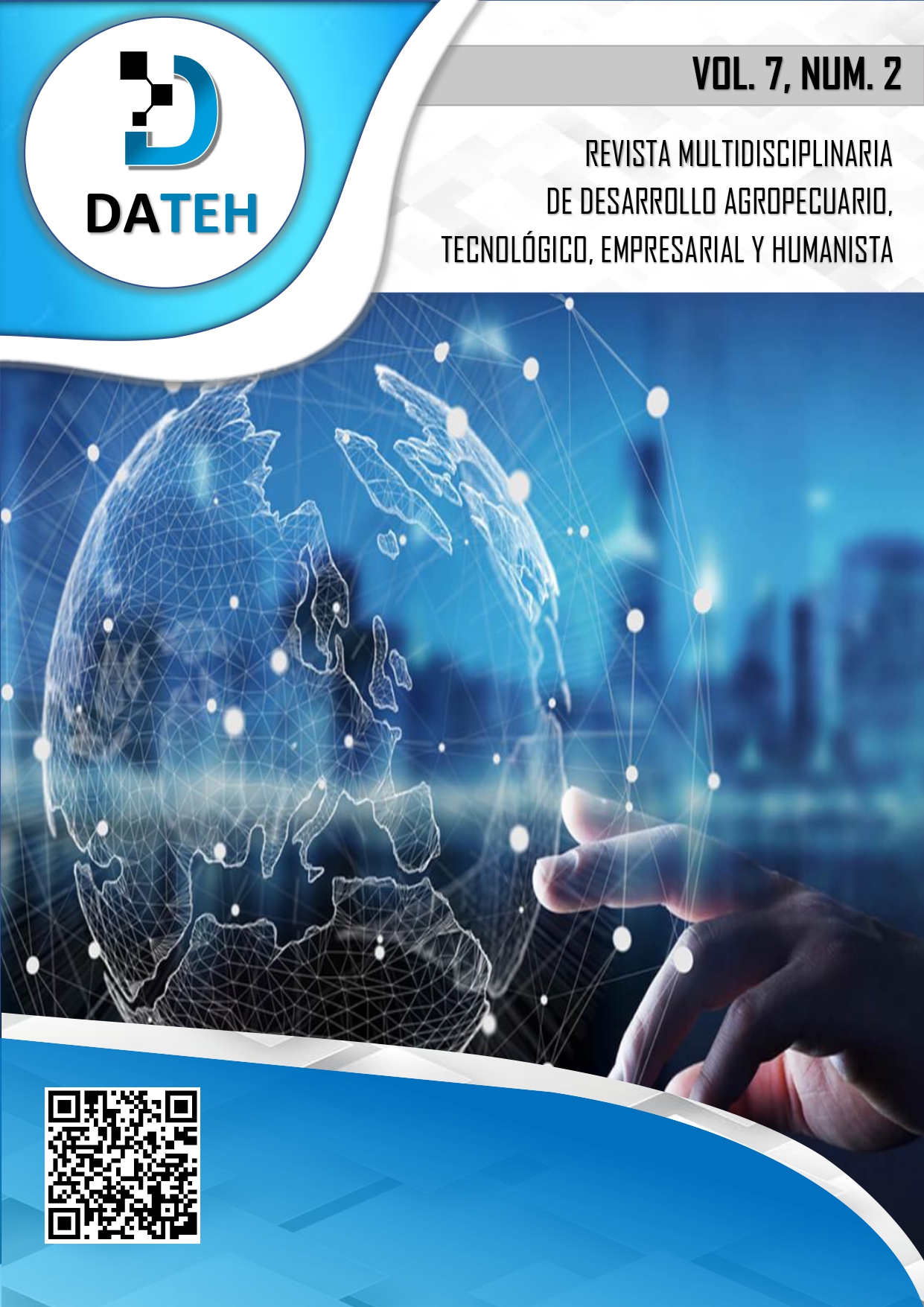The teacher as mediator of language and literature learning
Abstract
The language and literature teacher facilitates the development of linguistic and critical skills, focusing on reading comprehension, written expression, and analysis. By adapting strategies to the current context and diverse learning styles, the teacher aims to help students construct their own meanings, fostering personal judgment and reasoning in a dynamic social environment. This research aims to examine the teacher's role as a mediator in the teaching process within the area of language and literature, seeking to optimize and enhance the holistic development of students by understanding learning styles and the limitations of the educational system. The study employs a mixed approach (qualitative and quantitative) with a documentary and field-based methodology. Surveys are used to gather primary data on the perceptions of students and teachers in basic education. The analysis involves descriptive and explanatory methods applied to a non-probabilistic sample of 29 participants. Most students positively perceive the environment of trust and the clear explanations provided by the language and literature teacher. However, 61.54% of students disagree with the teacher's constructive feedback, despite 66.67% of teachers claiming to provide constant feedback. This reveals a disconnection between the perceptions of teachers and students. Improvements in academic reinforcement strategies are needed.
Downloads
References
Avendaño Castro, W. R., & ROLON BAUTISTA, T. O. R. C. O. R. O. M. A. (2019). Desarrollo de habilidades comunicativas y estilos de aprendizaje VAK. Una experiencia con estudiantes de grado segundo de básica primaria. Revista Logos Ciencia & Tecnología, 11(1 (2019)), 187-199.
Avila, H. F., González, M. M., & Licea, S. M. (2020). La entrevista y la encuesta:¿ métodos o técnicas de indagación empírica?. Didasc@lia: didáctica y educación, 11(3), 62-79. https://dialnet.unirioja.es/descarga/articu lo/7692391.pdf
Bernate, J., Fonseca, I., Guataquira, A., & Perilla, A. (2021). Competencias Digitales en estudiantes de Licenciatura en Educación Física. Retos: nuevas tendencias en educación física, deporte y recreación, (41), 309-318. https://dialnet.unirioja.es/descarga/articu lo/7947935.pdf
Carrillo, L. (2015). Población y muestra. Obtenido de: http://ri.uaemex.mx/oca/view/20.500.11 799/35134/1/secme-21544.pdf, recuperado el 11/05/2023
Córdova, G. E. C., Moreta, J. E. S., Mayón, J.B.C., & Abad, A. C. (2022). El rol docente como guía y mediador del proceso de enseñanza-aprendizaje. Ciencia Latina Revista Científica Multidisciplinar, 6(6), 13911-13922. https://www.ciencialatina.org/index.php /cienciala/article/view/4409/6763.
Ezquerro, A. M. (2021). Cuando se aproxima el lenguaje escrito al oral: competencias lingüísticas en el discurso académico del alumnado del grado en educación primaria. Educação & Formação, 6(1). http://educa.fcc.org.br/pdf/redufor/v6n1/ 2448-3583-redufor-6-1-e3502.pdf
Flores, V. H. M., Villegas, J. N. G., Villegas, I. I. G., Armentas, E. M. G., Villegas, M. A. G., & Monroy, L. N. (2024). Los Estilos de Aprendizaje de la Programación Neurolingüística de Bandler y Grinder (Visual, Auditivo y Kinestésico), en la asignatura Emplea Frameworks para el Desarrollo de Software en el Nivel Medio Superior. RICT Revista de Investigación Científica, Tecnológica e Innovación, 2(4), 57-63. https://revista.ccaitese.com/index.php/ri dt/article/view/114/53
García, J. G. (2020). El constructivismo en la educación y el aporte de la teoría sociocultural de Vygotsky para comprender la construcción del conocimiento en el ser humano. Dilemas contemporáneos: Educación, política y valores. https://dilemascontemporaneoseducacio npoliticayvalores.com/index.php/dilema s/article/view/2033/2090
Grajales, T. (2000). Tipos de investigación. On line) (27/03/2.000). Revisado el, 14, 112-116. http://cmapspublic2.ihmc.us/rid=1RM1 F0L42VZ46F4-319H/871.pdf
Martínez, R. M., Martín, M. M., Nieto, M. I. F., & Núñez, S. V. G. (2017). Acercamiento a las Teorías del Aprendizaje en la Educación Superior. Revista UNIANDES Episteme, 4(1), 48-60. https://dialnet.unirioja.es/descarga/articu lo/6756396.pdf
Ramos, J. L. (2000). El vídeo educativo. Guía Metodológica. Madrid: Universidad Politécnica de Madrid, Madrid. http://www.ice.upm.es/wps/jlbr/Docum entacion/Libros/Videdu.pdf
Sanmartín Ureña, R. C., Sanmartín Ureña, T. D. C., Sanmartín Ureña, M. E., & Angamarca Alarcón, M. E. (2024).
Tecnología educativa innovadora: explorando la influencia del ChatGPT en la calidad el aprendizaje en el área de lengua y literatura. Revista InveCom, 4(2). https://ve.scielo.org/pdf/ric/v4n2/2739- 0063-ric-4-02-e040254.pdf
Sibri, S (2019). Bajo rendimiento académico en la materia de lengua y literatura, de los estudiantes de 4to. Grado de educación general básica, de la unidad educativa buena esperanza, año lectivo 2017 – 2018. https://dspace.ups.edu.ec/bitstream/1234 56789/18089/1/UPS-CT008598.pdf
Torres, G. R. R., Pasapera, R. Y., Rios, J. A. S., Quiñones, A. M. V., & Barba-Briceño, L. E. (2022). Conductismo, cognitivismo, constructivismo: sus aportes y las características del docente y estudiante. Paidagogo, 4(2), 90-102.
Vega, N., Flores-Jiménez, R., Flores-Jiménez, I., Hurtado-Vega, B., & Rodríguez- Martínez, J. S. (2019). Teorías del aprendizaje. XIKUA boletín científico de la Escuela Superior de Tlahuelilpan, 7(14), 51-53. https://repository.uaeh.edu.mx/revistas/i ndex.php/xikua/article/view/4359/6343
Vidal, L. A., & Olivares, J. H. (2018). Factores psicosociales y su influencia en la desmotivación escolar. LOS PROBLEMAS DE LA ENSEÑANZA DE LA HISTORIA, GEOGRAFÍA Y CIENCIAS SOCIALES EN LA ENSEÑANZA MEDIA, 19-31. https://www.lweditorial.cl/libro_PROB LEMAS_HISTORIA.pdf#page=19
Vidal-Moscoso, D., & Manriquez-López, L. (2016). El docente como mediador de la comprensión lectora en universitarios. Revista de la educación superior, 45(177), 95-118. https://www.scielo.org.mx/pdf/resu/v45 n177/0185-2760-resu-45-177-00095.pdf
Zapata, M (2009). El papel mediador del profesor en el proceso enseñanza aprendizaje. https://nuestroscursos.net/pluginfile.php/4126/mod_resource/content/1/Elpapel mediadordelprofesor_Julio29%202016. pdf



